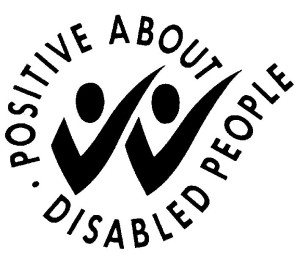Blog
Is Becoming a Virtual Assistant a Viable Deaf Job Opportunity?
/0 Comments/in Diversity and inclusion /by Tina Lannin
Photo: William Iven
A deaf job opportunity worth exploring
The old adage goes ‘do what you love and the money will follow’. A friend of mine loves organising, managing events, and scheduling appointments. Being asked to make lists and colour coordinate files make her giddy with excitement. She would love nothing more than being a personal assistant or office administrator, a humble yet fulfilling career.
My friend is almost completely deaf. She’s unable to get a job as a PA because managers don’t want to take the time to clearly communicate with her. They believe that taking notes, answering phones and making their jobs easier is her responsibility, not theirs.
Equal opportunity employment for hard of hearing and deaf people has always been a struggle. Even though many would say you should focus on your ability and not your disability, the truth is the job you get is dependent on whether hearing employers hire or reject you.
The easiest way to avoid this is by cutting out the middle man and becoming your own boss. Many deaf and hard of hearing individuals have ventured into the landscape of self-employment, most recently the profession of Virtual Assistant – opting to work online from home, instead of in an office.
Why a Professional CV Matters and How Academic Proofreading can Help
/1 Comment/in Transcription services /by Tina LanninMistakes & errors convey carelessness. Academic proofreading provide recruiters with a creative, well written CV & adds professionalism to your writing.
To be deaf, or not to be deaf? That is the question…
/0 Comments/in Diversity and inclusion /by Tina Lannin
The job market is competitive. And it’s challenging enough for non-disabled people to get interviews for a job, never mind those of us who have hearing loss.
As deaf jobseekers we have to decide whether or not to mention the fact that our hearing is less than perfect. Under the Equality Act 2010 it is illegal for recruiters to discriminate on the basis of a candidate’s impairments. But that’s hard to prove, and discrimination isn’t always conscious. So, how and when do you declare that you are deaf without jeopardising your chances of getting the job?
Tina Lannin, deaf owner of 121 Captions and a qualified career coach, offers her advice:
Don’t…
Mention you are deaf on your CV or application. In fact, you don’t have to mention any impairments at any point during your job application if you don’t want to.
One exception to this is where the organisation is a member of the ‘two ticks’ scheme. This ‘positive about disabled people’ symbol means that if you disclose that you are deaf and meet the basic criteria for the job you will be guaranteed an interview.
Do…
Consider leaving your phone number off your CV or application form if you struggle to hear calls. Even if you ask to be contacted by email, chances are you’ll still be called. If an application form absolutely requires your phone number why not use a professional answering service to take calls, or an answering machine.
Don’t…
Prejudice your chances at interview by trying to ‘wing’ it, even if you are an amazing lip reader. If you need communication support at your interview this is the point at which you should disclose that you are deaf. The good news is that Access to Work should cover the cost of the support you need.
Do…
Be positive if and when you disclose that you are deaf. If you tell a potential employer that your hearing loss means you can’t do x, y and z then don’t be surprised if it puts them off. Instead, educate them. Explain to them that being deaf isn’t really an issue because of the technology and many work-arounds there are. An excellent way to do this is to demonstrate how you dealt with any challenges in previous roles. Leave it to the employer to raise any objections, and gen up, ready to respond positively if they do.
And finally,
Do…
Boost your confidence with expert support. If you’ve just seen your dream job advertised and are desperate to get it, or you want to make a career change but don’t know where to start, speak to Tina. With a Postgraduate diploma in Career Education, Information and Guidance in Higher Education, Tina offers career guidance, help writing CVs, practice interviews, and an insight into psychometric testing.
What’s your experience of applying for jobs as a deaf person? Tell us about the good and bad below.

Lisa Caldwell works freelance as an accredited Phonak Roger Pen trainer with Credo Communications.
You can catch up with her at credocommunications@gmail.com
The complete beginner’s guide to employing deaf people
/0 Comments/in Diversity and inclusion /by Tina LanninEmploying deaf people means a few simple adjustments

So, you’ve recruited a new employee who’s deaf. What next?
Here are six simple strategies to ensure effective communication in the office, meetings and on the phone.
-
Ask about their communication preferences.
Pick a random sample of 10 deaf employees and you’ll find ten different preferences for communication. Some deaf employees will need communication support such as a sign language interpreter, but many won’t. Some people prefer email communications rather than face-to-face, especially if working in an open-plan office where there’s background noise. Others prefer to speak face-to-face as they use body language to help understand what they hear. Don’t assume, just ask.
-
Find out what it’s like for your new employee at work.
Working well as a team depends on successful communication. So, it will make a big difference if your new recruit’s colleagues receive professional deaf awareness training. As well as being an eye-opener, it will also teach some basic ‘etiquette’ that will help everyone feel comfortable together.
-
Plan your office.
Being deaf at work can be isolating, so it makes sense not to give a deaf employee a desk facing a wall, or with their back to the rest of the team. Being deaf also has safety implications, so ensure at the very least that your new recruit has a couple of buddies who will alert them to any fire or bomb alerts. A better solution when employing deaf people is to give them the independence of a flashing alarm or pager which activates if they need to clear the building.
-
Manage your meetings
When you’re employing deaf people, meetings can be fraught with misunderstandings if they are not managed properly. Deaf people manage meetings in a variety of ways. Some can hear well enough with a combination of lip reading and assistive devices, such as a loop or Roger Pen. In this case establishing a meeting etiquette will make a big difference to their experience, such as ensuring participants raise their hands before they speak and don’t talk over each other. Other deaf employees need additional help, such as live captioning, sign language interpreters, or lip speakers. Find out your employee’s preference well before the first meeting.
-
Don’t assume they can’t use the phone.
Some deaf employees are comfortable using the phone either with just their hearing aids or using assistive devices. Others need extra help to understand what is being said. Remote live captioning via a Skype call or teleconference call enables deaf employees to relate to any number of participants, and participate fully. All they need is a tablet, laptop or smartphone to receive real-time captions word for word, with a time gap of less than one second.
-
Don’t panic about the cost of these adjustments.
Depending on the country you’re in, there may well be funding available towards the cost of the captioning, assistive equipment and communications support you’ll want to consider when employing deaf people.
To find out how remote live captioning can help your deaf employees communicate well by phone and in meetings, email us at bookings@121captions.com or call +44 (0)20 8012 8170.






